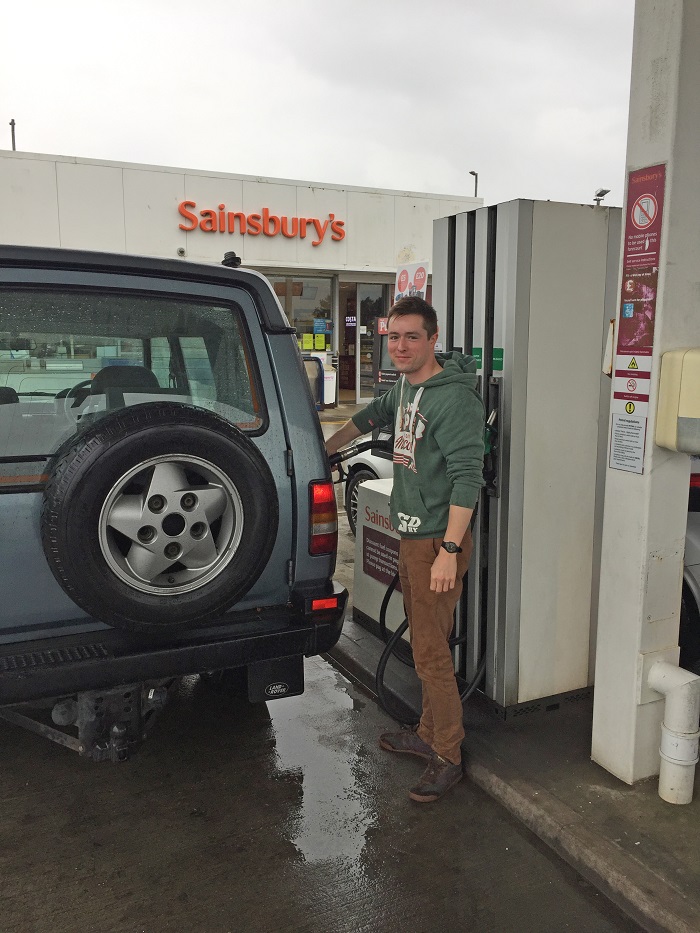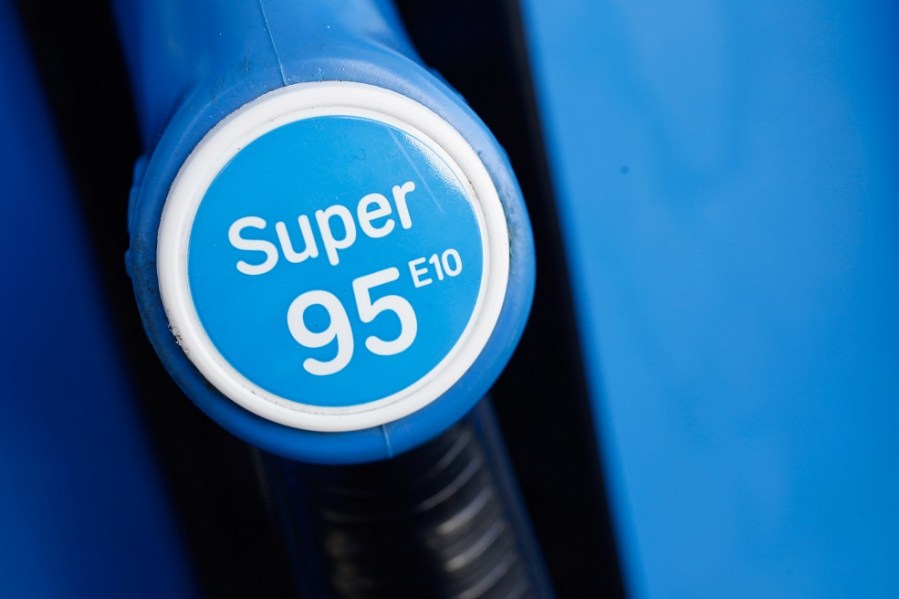MPs have urged for the introduction of controversial E10 fuel by 2020 at the latest, believing that adding more ethanol to the petrol sold in the UK would cut carbon by the equivalent of taking 700,000 cars off the road and help the struggling British biofuel industry. That’s despite E10 being potentially harmful to older vehicles and leaving owners out of pocket as they must fork out for costlier alternatives.
A report published last week by the All-Party Parliamentary Group for British Bioethanol says that while electric cars and vehicles are the long-term solution to emissions from transport, the majority of the cars on our roads are petrol powered and E10 represents a big advance that could be achieved right now.
E10 is a biofuel made up of 90 per cent regular unleaded and 10 per cent ethanol – hence its name. Unlike regular unleaded petrol, ethanol absorbs carbon dioxide, partially offsetting greenhouse gas emissions. However, while E10 has become widely available in several other counties and now accounts for 47 per cent of the petrol market in France, it’s yet to be made available in the UK despite the debate over its sale rumbling on for several years.
At present, ethanol made from wheat or sugar beet is blended into petrol to a maximum of 5 per cent in the UK, so swiftly doubling it would bring environmental benefits, argues the report. It also says that this would help secure and strengthen the UK’s £1bn bioethanol industry, based in the North of England, which has the potential to support approximately 6000 jobs. Should this industry flounder, the report says, the UK would likely have to increase imports of biofuel from overseas, potentially boosting the use of palm oil from deforested land.
Last July, The Department for Transport began a consultation period regarding the introduction of E10 petrol in the UK, but though the consultation period ended last September and findings on the fuel pump labelling aspects were published in February, nothing has yet appeared regarding its launch. Nic Daikin MP, the chairman of the all-party group, described its introduction as a “no brainer,” labelling the Government’s failure to publish the findings of its 2018 consultation on E10 as “bonkers.” MPs said this was likely to be down to a distraction with Brexit.

Potential damage
So, given the environmental benefits of E10, why the controversy? Well E5 unleaded can generally be used in any petrol-engined car without issue. With E10 however, things aren’t quite that simple. Ethanol is hygroscopic, so in other words it easily absorbs water, potentially leading to condensation in fuel tanks, fuel lines and carburettors. It’s also a solvent, so can disintegrate fibreglass, plastic, and rubber. Finally, it does not burn as efficiently, resulting in a potentially leaner mixture, higher fuel consumption and thus higher costs.
The DfT’s own research on suitability problems with higher ethanol blends identified several potential issues on older vehicles, including degradation to flexible fuel hoses and seals, blocked fuel filters, damaged fuel pumps, corroded carburettors, blockage and degradation of seals on injectors and pressure regulators, and fuel tanks that are not resistant to ethanol. Fuel in stored vehicles can also go stale much sooner, leading to disposal problems.
Confusion reigns over the date when cars became suitable for E10, too. Many sources cite cars built before 2002 as being unsuitable for use with E10, some oil companies quote 2004, while Porsche suggests pre-1996 for its own range of vehicles. This means putting a figure on the amount of vehicles affected is difficult, but even the DfT suggests it would be at least half a million.
The APPG has gone for pre-2000, but argues that the threat of E10 to such vehicles is minimal. “There is no evidence from Europe or the US where E10 is widely used of the fuel causing any significant damage to any vehicle manufactured before the turn of the century,” reads the report. “No reports of engine damage have come to light of motorists in the UK travelling to countries in Europe where E5 is being phased out at the forecourts, such as France and Belgium. This is despite repeated sensationalist national media articles repeatedly raising this risk to UK holidaymakers.”
Of course, it’s extremely difficult to prove whether ethanol is to blame for failing components, especially when they are older items that could have reached a natural end anyway. However, it’s a question of whether you want to take the risk. Research by the FBHVC has found that some elastomers, plastics and composite materials are not compatible with petrol containing ethanol, and it has called for the continued availability of fuel with no or a low percentage of ethanol.

Ethanol fuel is thought to be harmful for older vehicles, but E10 could be sold in the UK soon.
Aside from compatibility issues, there’s also one of cost. In last year’s consultation, the Government said its preferred option is to introduce a ‘protection grade’ that requires larger filling stations to continue to stock the standard premium 95 petrol in an E5 grade should they decide to stock E10. The previous requirement for a protection grade to be sold by larger retailers expired on January 1, 2017.
Under this proposal, a complete market switch to E10 as the only 95 octane fuel, such as seen in Belgium in 2017, would not be an option in the short term. However, longer term, the concern is that 95 octane E5 fuel would become a thing of the past. The bioethanol industry has given express reassurances that were E10 to be mandated, motorists would still be able to purchase E5 at many forecourts, but only as a 98-octane fuel.
Although having E5 remain available in this way would undoubtedly still be a positive compared to a complete discontinuation, it would effectively force some consumers to add 8-10 pence per litre to fuel bills and may involve re-tuning engines to suit. For owners of seldom-used classics this is unlikely to be a problem, but it could well have a negative impact on those running older cars on a budget.
In response to the APPG’s report, a Department for Transport spokesperson said: “We are committed to supporting cleaner and greener fuels, and we recognise the important role they have to play in decarbonising transport. Following our call for evidence on E10, we intend to publish our next steps in due course.”
Whether he pressure from the APPG influences the introduction of E10 remains to be seen. For now, it remains a case of waiting for the government’s response to its 2018 consultation – a wait that’s already lasted the best part of 10 months.




